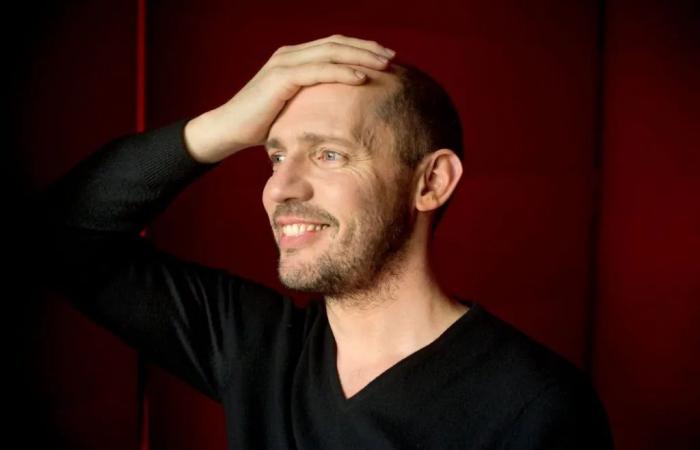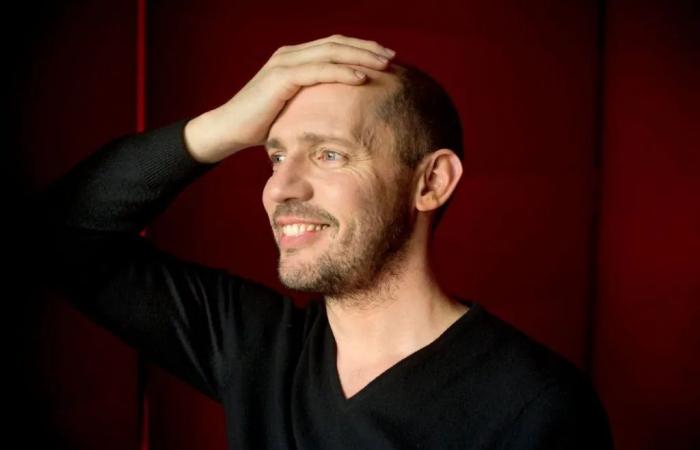“Let’s ask ourselves what demons are haunting Onegin” Stéphane Degout
Theseus superlative at the Capitole during the entry into the repertoire of the illustrious Toulouse house of Hippolyte and Aricia by Jean-Philippe Rameau in 2009, upsetting Wozzeck still at the Capitol in 2021, Stéphane Degout returns to the Capitol stage with the title role of Pyotr Ilyich Tchaikovsky’s masterpiece: Eugene Onegin. Another tortured character whose portrait we asked the most magnificent French baritone of his generation to paint for us.
Encounter.
Classictoulouse: This Eugene Onegin should have seen the light of day 3 years ago but Covid decided otherwise. In the meantime, you took on the role in Brussels in January 2023 in a production by Laurent Pelly. But let’s look back to history. What was your reaction when Christophe Ghristi offered you this role for the Capitol?
Stéphane Degout: Already at the time when Christophe Ghristi was at the Paris Opera, we discussed my repertoire together. The roles of Wozzeck and Onegin were on the list of jobs I wanted to tackle in the years to come. As soon as he took charge at the Capitol, he questioned me on these subjects. Christophe Ghristi is someone who is very loyal to artists. He is a valuable, solid artistic interlocutor in whom I have complete confidence.
With Onegin you take your first steps in the Russian repertoire and language. What did this experience reveal to you?
I was scheduled for Eletski in The Queen of Spades by Tchaikovsky in 2020 in Brussels and then, still for the same reasons, we did not even start rehearsals. So, yes you are right, these are my debut in the Russian repertoire. To answer your question more completely, I discovered the Russian language with Onegin and, above all, the music of this language. Of course, at the beginning the language is an obstacle because learning the role requires a phenomenal amount of work. Take this learning step, this language provides incredible singing comfort. It’s difficult to explain but this idiom is very inside the mouth and gives an immediately ideal vocal position for singing. The writing is also, it must be emphasized, very simple. Here there is no question of bel canto in the Italian sense of the term with vocalizations, trills and all that implies. The bass clefs are really in a relatively standard ambitus, comfortable we can say. Even if Tchaikovsky slipped a G into my score in the last act!
How did you approach studying this role?
I had music in mind because throughout my youth and my studies I listened to this work a lot. I have read Pushkin in two different translations. Then I had to familiarize myself with the text in Russian, a major step of course. The production in Brussels was a first step allowing me to make this role my own, or at least to begin to make it my own. I must thank Nino Pavlenishvili which, both in Brussels and in Toulouse, provides me with very high quality “Russian” coaching.
Have performers from more or less ancient times inspired you?
Yes of course. I often listen to several recordings without settling on one of them because I don’t want a “model”. But as soon as I start singing the role I no longer listen to anyone because then I need to be free in my head. Coming back to the recordings, I admit to being impressed by Yuri Mazurok (editor’s note: this baritone sang the role at the Théâtre du Capitole in November 1980). The clarity of his diction is exemplary and has helped me a lot.
Onegin’s ill-timed passion for Tatiana almost makes him an anti-hero. What does he tell you personally?
The character written by Pushkin is 23 years old and that really appeals to me. I have twice as many, but what you have to understand is that the famous mid-life crisis, at that time, men had it at 20 years old. In French romanticism, all you have to do is read Musset, it’s the same. Tatiana, Olga and Lenski are all very young people. This does not prevent them from having already experienced a very deep and absolutely not superficial sentimental journey. The question of age does not arise in the staging of Florent Siaud. Let us instead ask ourselves what is inside Onegin, is he totally jaded, is his soul dark, has he missed the boat, is he the victim of a time scale that is not the right one? for him ? There are plenty of trails to explore, that’s for sure.
Are you familiar with complex characters such as Hamlet, Pelléas, Wozzeck for example? Does Onegin fit into this gallery of portraits?
Completely, except perhaps that Pelléas is a slightly smoother character than the others, especially compared to Golaud. It will not surprise you if I emphasize here that all these roles which partly populate my repertoire come from literature. Shakespeare, Maeterlinck, Pushkin, Büchner, wrote these characters before composers took hold of them.

The score has a particularly tense and intensely dramatic final act in store for you, requiring, one imagines, excellent energy management.
Indeed, in the first act I make an appearance. Then there is the oral response to Tatiana’s letter. In the second act there is the ball scene at the Larinas’ house and the duel. Everything rushes for me in the last act. Onegin returns from three years of exile but is still pursued by his demons and in particular that of having killed his best friend. The final duet with Tatiana is a true explosion of passion and feelings. This is clearly the pinnacle of the role. I would like to say how important it is to note that he then sings to the same melody as that which animated the scene of Tatiana’s letter. He even repeats words contained in this letter, a letter that he had to read and reread. On Tchaikovsky’s part, the process is brilliant. Personally I think that Onegin refrained from responding favorably to this letter because, after having inherited his uncle’s copious inheritance, he voluntarily isolated himself by moving away from the superficial life of Saint Petersburg. It is not forbidden to think that he previously experienced unhappy sentimental adventures which closed the door to a new encounter. In this third act, all this explodes in his face and he is forced to give in.

Do you have any upcoming roles?
It’s not quite a real role-taking even if I approach it as such, it’s Wolfram from Tannhäuser in a year. Amfortas in Parsifal will come within three years. There will also be French works from the first third of the 20th century which are rarely given but literally sumptuous, with fascinating characters also coming from literature.
Wolfram, Amfortas…
Yes, I accepted these roles because their writing is similar to that of a song. The line is magnificent and above all less brutal than in certain other Wagnerian scores for my range, such as Telramund and the Dutchman.
What are your upcoming shows?
Concerts, then Hamlet in Salzburg this summer, Wozzeck then in Lyon. In London I am participating in the world premiere of an opera, Festen, taken from the eponymous film by Thomas Vinterberg released in 1998. I sing the role of Michael, Christian’s brother. It’s a real challenge. I don’t do much creating but it excites me a lot. It will be for February 2025. It is an opera by Mark Anthony Turnage, an English composer who is certainly demanding but who knows how to write remarkably for the voice.
Comments collected by Robert Pénavayre
a ClassicToulouse column
> Eugene Onegin, the masterpiece of Russian romanticism
Online Ticketing
National Capitol Opera








